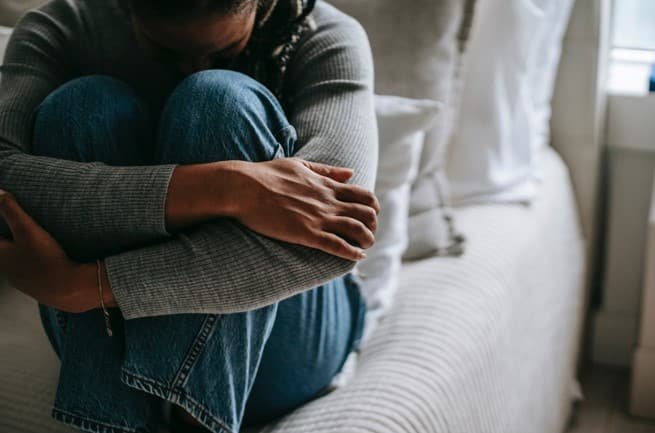
Sooner or later, everyone faces the loss of loved ones. How psychological science will justify the inevitability of bitter experiences – about this in our article.
Do not forget, but return
Psychologically speaking, grief is the process by which a person works with the pain of loss, regaining a sense of balance and fullness of life. It is the way in which a person recovers from a perceived loss. This process is long, several critical periods are distinguished in it.
In the first 48 hours, a person experiences the shock of the suffered loss and refuses to believe in what happened. During the week, thoughts are occupied with the need for a funeral and other chores, and feelings of loss can be transferred automatically, accompanied by feelings of decline, emotional and physical exhaustion.
The reality of the loss is finally realized only after 6-12 weeks when all the consequences of the shock are removed. But even then the person does not control himself well. He may have bouts of crying, panic, sleep disturbances, appetite, mood swings, and a desire to retire. Often there is an inability to concentrate and remember something, as well as an increased need to constantly talk about the deceased.
In the future, after 3-4 months, due to the suppression of the immune system, health problems, especially of an infectious and cold nature, may become more frequent. Six months after the loss of a loved one, depression often develops. The tipping point could be the anniversary of death.
Finally, after 18-24 months, the so-called “resorption” time comes, the pain of loss becomes more bearable, and the person who has experienced the loss gradually returns to his former life. There is an “emotional farewell” to the deceased, the realization that it is impossible to forget him, but there is no need to fill his whole life with the pain of loss.
Psychological advice
- Depression can be relieved by physical mobility: don’t throw up your skiing trips, the gym, the pool – staying near the water is especially beneficial. Buy a gymnastics disc for your age and do it at home.
- Try new experiences that can help distract you and drive out grief. Start traveling, take a walk in Paris at night, visit the pyramid in Egypt, delve into exotic car rental in Dubai – there are so many interesting places in the world!
- Get a pet – it teaches affection and care.
- Refrain from making immediate global decisions, such as selling a house or changing jobs.
- Religion can support grief, even if you ask reproachfully, “How could God allow this?” Grief is a spiritual quest. Go to church, tell the priest about the trouble. Make the decision to start life again. Hold on to hope!

If children are faced with the bitterness of loss, adults should be especially careful. On the one hand, for a baby, the loss of a loved one is a severe trauma that can remain for a lifetime. On the other hand, the child himself begins to realize that he is mortal, and this also greatly traumatizes him. Children recover faster than adults, but are more vulnerable and require increased attention. Therefore, for any alarming symptoms – frequent nightmares, depression, increased irritability, or aggressiveness – consult a child psychologist.
Payment for love
And yet, apart from the medical classification of the problem, how to deal with it?
First of all, if a tragedy happened, you need to accept your grief. Sorrow is the price we pay for love. Show your feelings, do not hide despair from loved ones. Do not withdraw into yourself! You can’t drive grief inside. If you want to cry – cry, you want to laugh – laugh! This means that the body needs it, this is its reaction, and no one will blame you for it!
At the same time, watch your diet: if you don’t feel like eating, you still need to! Otherwise, it will only get worse. Try to balance work and rest, going into work with your head is not an option, the body is already depleted.
In a difficult period of experience of loss, it is highly recommended to undergo a medical examination, at least to take blood tests and make a cardiogram. Tell your doctor about your feelings! You’ve suffered enough already. Do not harm yourself and others by neglecting your health.
Do not hesitate to share your experiences with your friends – they can also get into this situation. And it would be nice to talk to people who have the same grief, it will help to understand yourself. Help others! Find the strength to pay attention to those who, perhaps, are worse off than you.

Appreciating life
And remember that your family and friends need you, and life goes on! You need to gradually move away from the past and be in the present. After all, for some reason life is given to us, and it is not for us to decide when to stop it. Each of us has our own destiny. Happy is he who found it.
Smile! See how many disgruntled people are on the street around. One must live for the sake of those people who are near, bringing joy into their lives. And your life is filled with meaning again!
ATTENTION READERS
We See The World From All Sides and Want YOU To Be Fully InformedIn fact, intentional disinformation is a disgraceful scourge in media today. So to assuage any possible errant incorrect information posted herein, we strongly encourage you to seek corroboration from other non-VT sources before forming an educated opinion.
About VT - Policies & Disclosures - Comment Policy



